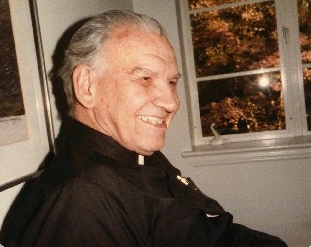Yesterday we
looked at how so many people seem to be upset with Pope Francis. Neither the liberals nor the conservatives
seem to be getting their way. One thing
we discovered, however, is that none of this is particularly new. It’s all happened before, with Pope Leo XIII,
with whom Pope Francis has a number of similarities.
 |
| "Didn't see that coming." |
Second,
according to Catholic belief, those cardinals aren’t really the ones selecting
the pope. No, the Holy Spirit, the Third
Person of the Blessed Trinity does that.
Leo XIII certainly looked like an unlikely candidate. In fact, the only one in recent centuries who
seemed less likely than Leo was Francis.
If we were
anti-Francis fanatics, those two facts might give us a little pause that
distresses. As should the sort of things
presumably faithful Catholics were saying about Leo XIII, e.g., insane, senile, under the thumb of the Jesuits, naïve, — you
name it, they said it.
Well . . . just
a little. You see, Leo had a clear
vision in mind of what the papacy should do, what the Church should look like,
and how it should relate to the world.
His pastoral letters as Ordinary of Perugia are a clear indication of
how he thought and what he saw as a solution for the problems caused by the
“new things” of the modern world, especially capitalism, socialism, and the
vastly expanded role of the State that both capitalism and socialism end up
demanding.
The State
shouldn’t be doing that. It has an
essential role to play, but it’s nowhere near as big as either the capitalists
fear or the socialists demand. Nor do we
need the State (or a rich private sector élite) to take care of us. As Leo made clear,
This becomes still more clearly
evident if man's nature be considered a little more deeply. For man, fathoming
by his faculty of reason matters without number, linking the future with the
present, and being master of his own acts, guides his ways under the eternal
law and the power of God, whose providence governs all things. Wherefore, it is
in his power to exercise his choice not only as to matters that regard his
present welfare, but also about those which he deems may be for his advantage
in time yet to come. Hence, man not only should possess the fruits of the
earth, but also the very soil, inasmuch as from the produce of the earth he has
to lay by provision for the future. Man's needs do not die out, but forever
recur; although satisfied today, they demand fresh supplies for tomorrow.
Nature accordingly must have given to man a source that is stable and remaining
always with him, from which he might look to draw continual supplies. And this
stable condition of things he finds solely in the earth and its fruits. There
is no need to bring in the State. Man precedes the State, and possesses, prior
to the formation of any State, the right of providing for the substance of his
body. (Rerum Novarum, § 7)
In other words
(and to summarize), what Leo saw was that the answer to the problems of the modern
world was to return power to people so that they can control their own
lives without constant intrusion by the State.
And that means that every person must be a producer as well as a
consumer, and a consumer as well as a producer.
Further, since
in the modern age technology is rapidly replacing labor from the productive
process, the only thing to do is to make it possible for everyone to own
capital if they want to be able to produce.
Thus (as Leo concluded), “The law, therefore, should favor ownership, and its
policy should be to induce as many as possible of the people to become owners.”
 |
| CESJ co-founder Fr. Ferree: "It'll work out. Social justice takes time." |
Fortunately,
Leo was not so concerned about the how as the what. As long as the means is legitimate, any
method that turns non-owners into owners should be okay. That’s why we advocate the Capital Homesteading proposal of the Just Third Way: it’s a way people can buy capital
now, and pay for it with the future profits of the capital, then have the
income afterwards as an income to meet consumption needs.
What about all
those other things the popes have talked about?
You know, the need to pay a living wage, social welfare, universal
healthcare, etc., etc., etc.? If you read carefully,
you’ll see that most of those things are essential in the current state of
society in which few own, but will no longer be necessary when every child,
woman, and man owns enough capital to generate an adequate and secure income.
That’s right, they’re
expedients, not the desired end. We can
tolerate them for as long as they are necessary, but not a moment longer.
And why
are they not the permanent solution so many people believe and crave? Because they offend against human
dignity. They treat adults like children
when they should be treating adults like adults.
And that is the
message Pope Francis needs to hear. Yes,
what he is saying now is necessary in the current state of society . .
. but there’s no reason it should go beyond that. The whole point of Catholic social teaching is to restructure the social order, not maintain a socialist or capitalist status quo.
#30#

